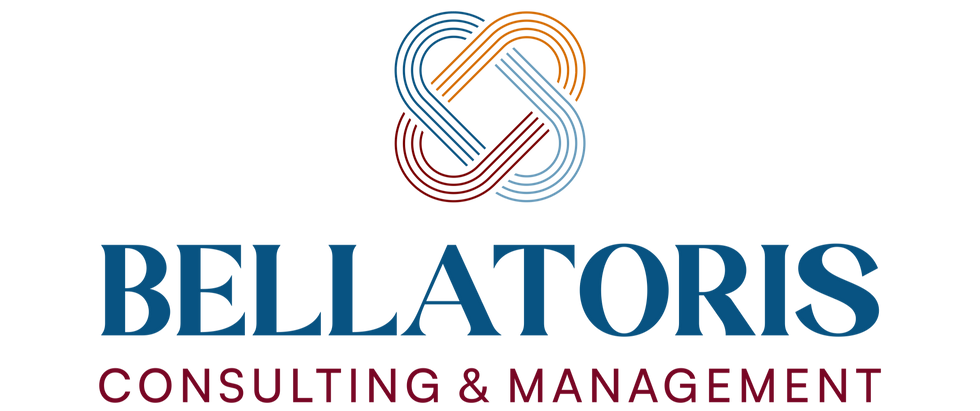Artificial intelligence (AI) is more than just a trend—it is changing the landscape of government contracting. As public procurement evolves, the integration of AI is becoming essential. By streamlining processes and improving decision-making, AI offers significant advantages that consulting firms cannot afford to overlook. Understanding how AI transforms government contracting will be vital for those seeking to stay innovative and competitive in this field.
The Benefits of AI in Government Contracting
AI brings remarkable efficiency to the complex world of government contracting.
One of the primary benefits is AI's ability to analyze large volumes of data quickly. Government contracts often require scrutiny of multiple bids, specifications, and compliance criteria. For instance, AI can process thousands of contractor proposals in a fraction of the time it would take a human analyst, identifying crucial patterns within just minutes. A case study found that using AI allowed the U.S. Department of Veterans Affairs to evaluate bids up to 60% faster than traditional methods.
Additionally, AI enhances decision-making through predictive analytics. By examining historical data, AI can forecast potential outcomes, helping government agencies anticipate risks effectively. For example, predictive models can analyze past contract performances, allowing agencies to make informed decisions based on projected success rates. This proactive approach leads to better strategic planning and risk mitigation.
Moreover, AI automates routine tasks, freeing up government employees to focus on more complex issues. Tasks like document management, compliance checks, and data entry can be handled swiftly by AI systems. According to the McKinsey Global Institute, automation could free 20% to 30% of employee time, significantly boosting productivity. This not only increases accuracy but also helps to reduce human error within contract management processes.

Examples of Successful AI Implementations in the Industry
Several organizations have begun harnessing AI's capabilities in government contracting, showcasing impressive results.
A prime example is the U.S. General Services Administration (GSA), which has implemented AI-driven tools to streamline its procurement process. By automating the evaluation of contractor bids, GSA has decreased assessment times drastically, thanks to AI algorithms that can process applications in hours rather than weeks. This enhances transparency and fairness in the bidding process while fostering competition.
Another noteworthy implementation is at the Department of Defense (DoD). Using AI algorithms, the DoD has improved logistics and supply chain management significantly. By utilizing machine learning, the department can anticipate supply needs for various missions based on past data and real-time conditions. This foresight not only improves resource allocation but can also lead to savings of up to 10% in operational costs by avoiding overstocking and reducing waste.
These examples highlight the growing acceptance of AI's potential among government agencies, paving the way for broader adoption across various facets of government contracting.
Tips for Consulting Companies to Integrate AI into Their Government Contracting Strategies
To successfully integrate AI, consulting firms should consider the following practical tips:
1. Understand the Landscape
A comprehensive understanding of government contracting's unique challenges is essential. Researching how different agencies currently implement AI can provide valuable insights into effective solutions.
2. Leverage Existing AI Solutions
Numerous AI tools specifically designed for government contracting are available today. By leveraging these existing solutions, firms can kickstart their AI initiatives without developing new technologies from scratch.
3. Collaborate with Technology Experts
Partnering with AI solution providers can enhance a consulting firm's capabilities. These experts can help align AI solutions with regulatory requirements and best practices, ensuring a smoother implementation process.
4. Focus on Data Quality
AI algorithms perform best with high-quality data. Consulting companies should emphasize solid data management to ensure that the data fed into AI systems is accurate, relevant, and comprehensive.
5. Foster an AI-Friendly Culture
Adopting AI goes beyond technology; it requires a cultural shift. Encouraging a work environment that embraces innovation will help team members adapt to new AI tools. Providing training focused on AI applications in government contracting is a great way to facilitate this transition.
Looking Ahead
The future of AI in government contracting offers substantial transformation opportunities. By improving efficiency, enhancing decision-making, and streamlining processes, AI is set to become indispensable for government agencies and consulting firms alike. Existing successful implementations demonstrate that the benefits of AI are not only real but also readily achievable.
Consulting firms that thoughtfully integrate AI into their strategies will outpace the competition and contribute to a more effective and transparent government contracting landscape. Embracing AI is vital for unlocking new possibilities and optimizing operations in this rapidly evolving field.


Commenti